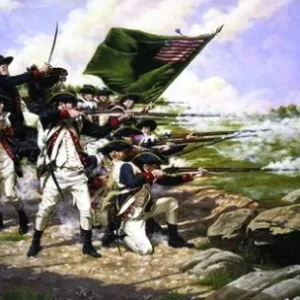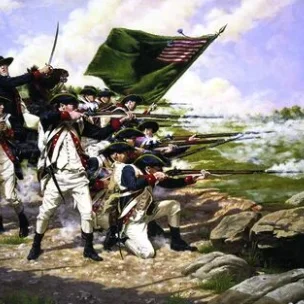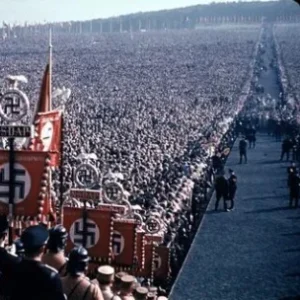
The Impact of War on Families in “Crossing the Line”
Crossing the Line by Elizabeth Van Doren delves deep into the lives of a German

“Crossing the Line” by Elizabeth Van Doren delves deep into the lives of a German family during World War II, exploring how the Nazi regime’s policies and the war itself affect them. The book is a powerful reminder of how ordinary families are caught in the crossfire of political upheaval and violence.
At the center of the story is André, a PhD student who becomes increasingly disturbed by the Nazi regime’s actions. The impact of the war on his family is profound and multifaceted. André’s experiences highlight the intellectual and moral struggles those who opposed Hitler faced. His internal conflict and fear are palpable as he witnesses the transformation of his beloved university into a tool of propaganda. The tension André feels between his professional obligations and his personal convictions adds depth to his character and underscores the difficult choices many had to make during this time.
Hertha, André’s wife, embodies the war’s emotional toll on families. Her encounter with the Brownshirts and her efforts to shield their daughters from the harsh realities of the regime illustrates her protective instincts. Hertha’s role is crucial as she balances the need to engage in their resistance efforts while trying desperately to maintain a semblance of normalcy and safety for their children. Her resilience is evident as she navigates these challenges, showing strength in the face of adversity.
The family’s daughters, Pülein and Gaby, provide an emotional perspective on the war’s impact on the younger generation. Pülein’s school life is disrupted by the Nazi ideology being imposed on students. Her experiences with her anti-Semitic teacher and her secret love for sailing, which symbolizes freedom, reflect her inner conflict and desire for normalcy. Pülein’s character shows how the war forces children to grow up quickly, facing moral and ethical dilemmas far beyond their years.
Gaby, the younger daughter, is deeply affected by the violence and hatred she witnesses. Her sensitivity and fear highlight the psychological impact of living under a totalitarian regime. Gaby’s bond with her sister and her struggle to understand the changes around her add an emotional layer to the story. The family’s efforts to protect Gaby’s innocence and sense of security amidst the chaos are both touching and heartbreaking.
The book also explores the broader community’s impact on the family. Neighbors and friends, once part of a close-knit community, become sources of fear and suspicion. The Fiedlers, a Jewish family helped by André and Hertha, represent the broader persecution faced by Jews during the Holocaust. Their story within the novel underscores the risks taken by those who chose to help and the severe consequences they faced.
Liliana, a Polish Jewish girl, is another significant character whose story intertwines with the main family. Her experiences highlight the extreme oppression faced by Jewish families. The parallel between Liliana and Pülein emphasizes the different experiences of children during the war. Liliana’s story adds depth to the novel, showcasing the broader impact of Nazi policies beyond Germany. Her suffering and resilience offer a stark contrast to the Hūg family’s struggle, highlighting the diverse ways in which the war affected individuals.
“Crossing the Line” paints a vivid picture of the era, capturing the fear, confusion, and resilience of those living through it. Elizabeth Van Doren’s portrayal of this family’s experiences is both detailed and emotionally engaging. She successfully brings to life the daily struggles and acts of defiance that defined the lives of many during World War II. “Crossing the Line” is a compelling narrative that highlights the impact of war on families. Through the eyes of André, Hertha, Pülein, Gaby, and Liliana, readers experience the emotional and psychological challenges posed by living under Nazi rule. Elizabeth Van Doren’s storytelling emphasizes the resilience of the human spirit and the importance of standing up against injustice, even at great personal risk. The novel serves as a powerful reminder of the sacrifices made by ordinary people in extraordinary times.

Crossing the Line by Elizabeth Van Doren delves deep into the lives of a German

During the darkest moments of Nazi Germany a few brave students ventured to oppose the government
